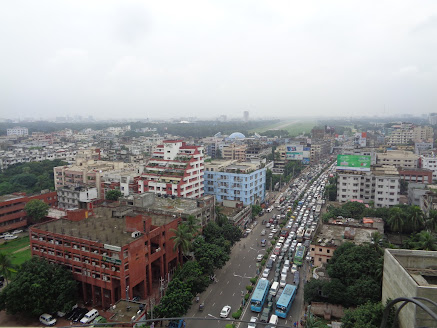The glittering life of social media: reality or a mirage?
General Information
27 March | Written By Zarin Tasneem Mouly
The glittering life of social media: reality or a mirage?
You are scrolling on your Instagram and saw a post of your best friend getting engaged. How do you feel? Sad? Happy? Excited? Jealous? Or your university junior just got into a job with a whopping 6-digit salary. Does it make you doubt yourself or your capabilities? Does it make you think that you are lagging?
In the glittering and shining world of social media, everything looks colorful and happy. But, what the actual picture is? Are people always living the best life with no worries about jobs, money, or family? Well, the answer to this question is no.
In a recent study by Dr. Pantic, a psychiatrist with a focus on cyberpsychology said that around 30 out of 50 people suffer from depression due to the effect of social media. Over the last decade, the fast advancement of social media platforms like Facebook, Twitter, and MySpace, among others, has brought about significant transformations in the ways people engage and communicate with each other.
In recent times, certain researchers have linked the use of online social networking to various mental health issues, such as depression, anxiety, and low self-esteem. Given that social media is still a relatively new phenomenon, there are still many unanswered questions regarding their potential effects on mental health.
However, considering the widespread use of these platforms among the general population, any confirmed association between them and mental health disorders in the future would pose a significant public health concern.
Let’s get to understand why do we see people always happy and colorful on the social media. What is the psychology behind this? Is it a reality or just the portrayal of fake emotions and aesthetics?
As psychologist Dragana Ostic thinks that, social media platforms like Instagram, Facebook, and Twitter are designed to make it easy to share photos, videos, and updates with friends, family, and followers. Though, the content that people share is often carefully curated to present a particular image or persona.
This means that people may be more likely to share photos of themselves enjoying a beautiful vacation, going to a fun event, or spending time with loved ones than they are to share mundane or negative experiences. As a result, social media can create the impression that everyone's lives are full of excitement, beauty, and adventure. Social media can create the illusion that everything is colorful and vibrant because people tend to selectively curate and share the most positive aspects of their lives.
Not only this, social media platforms often use filters and editing tools to enhance the visual appeal of photos and videos. This can make images appear more vivid and colorful than they might in real life, further contributing to the illusion that everything is bright and beautiful.
Another aspect is the likes and reaction. We all have a Mr. Hyde called a narcissist hidden inside us. Social media platforms like Facebook, Instagram and even professional social media LinkedIn has reaction buttons and this feeds our narcissist traits.
The relationship between social media likes and reactions and mental health is complex and multifaceted. While they can serve as a source of validation and positive reinforcement, they can also contribute to negative mental health outcomes and even addiction.
One theory suggests that social media likes and reactions can contribute to negative mental health outcomes by fostering social comparison. When people see others receiving a lot of likes and positive reactions on their posts, they may feel inadequate or inferior by comparison.
On the other hand, social media likes and reactions can also serve as a source of positive reinforcement, which can boost self-esteem and positive feelings. When people receive positive feedback on their posts, they may feel validated and connected to others. And, sometimes this turns into an addiction and as we know, no addiction can result in anything positive.
In conclusion it can be said that, social media is not a reflection of real life and that many people experience challenges, struggles, and setbacks that they may not choose to share online. It's important to practice self-care and mindfulness when using social media and to recognize that the content you see may not always be an accurate representation of reality.
Zarin Tasneem Mouly
Zarin Tasneem Mouly is a student at Brac University of School of Law (SOL). She was born in Rajshahi. She completed her SSC from Shimul Memorial North South School & College, Rajshahi & HSC from Varendro College. She is an extrovert & is very focused about her career. She likes to read books, watch movies, do vlogs etc. She also loves to spend time with her family & friends. Besides, She is a Rotaract of Padma Metro Politan, Rajshahi. She works for the poor & underprivileged people. She also worked in the polio organisation to eradicate polio from all over the world. Her Life Moto Is ‘Do what you love & love what you do’.


Comments
Post a Comment